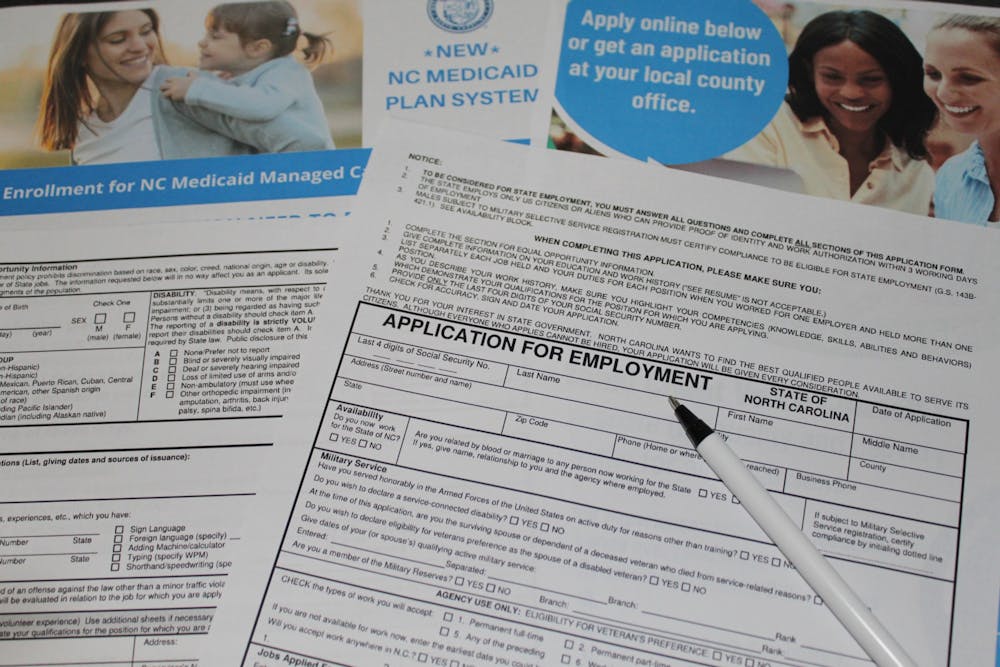On Feb. 16, House Bill 76, a new bill to expand Medicaid, passed the N.C. House of Representatives 92-22 with large bipartisan support.
The bill, titled "Access to Healthcare Options," was sent to the Senate Rules Committee after passing its first reading in the N.C. Senate on Monday.
The primary sponsors of H.B. 76 are Reps. Donny Lambeth (R-Forsyth), Donna McDowell White (R-Johnston), Michael Wray (D-Halifax, Northampton, Warren) and Chris Humphrey (R-Greene, Jones, Lenoir).
None of the primary sponsors responded to The Daily Tar Heel's requests for comment on the bill.
According to Jonathan Oberlander, a UNC professor of health policy and management and the chair of UNC's Department of Social Medicine, Medicaid has been contested in states like North Carolina for over a decade since the Affordable Care Act was initially passed in 2010 under the Obama administration.
Oberlander said not everyone is eligible for Medicaid in North Carolina. Those who are eligible include pregnant people, those responsible for children, people with disabilities and people over the age of 65.
"Childless adults are simply ineligible in North Carolina for Medicaid," Oberlander said.
Since North Carolina has not expanded Medicaid, he said, there are hundreds of thousands of low-income North Carolinians who do not have access to health insurance.
Meghana Ammula is a research associate for the Medicaid and uninsured program at the Kaiser Family Foundation, a health policy analysis organization.



